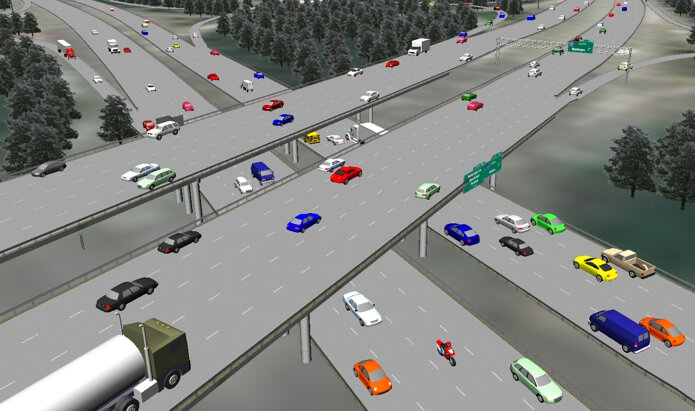

Key Features
UK businesses can apply for a share of up to £15 million to develop simulation technologies that speed up the deployment of connected and autonomous vehicles.
Programme: Centre for Connected and Autonomous Vehicles (CCAV) in partnership with Innovate UK
Award: Up to £3.5m
Opens: 15th Jan 2018
Closes: 2nd May 2018
In its industrial strategy, the government outlined its ambition to have self-driving vehicles on UK roads by 2021.
To help meet this ambition the Centre for Connected and Autonomous Vehicles (CCAV), in partnership with Innovate UK, is to invest up to £15m in industry-led projects. These will use holistic simulation and modelling systems to develop approval mechanisms and standards. This work will support the development and deployment of connected and autonomous vehicles, and help make sure they will receive approval in the future.
This competition is for collaborative research and development (R&D) projects. It is the first stage of CCAV’s approach to enhancing the UK’s testing ecosystem through simulation and modelling. Project teams should consider how their proposal will enhance the UK’s testing ecosystem.
In 2019, CCAV and Innovate UK expect to run a further capital investment competition to support simulation and modelling for CAV testing, regulation and deployment.
CCAV and Innovate UK will fund a small number of projects focused on holistic simulation and modelling systems. These must speed up the development and deployment of CAVs, and support the design of regulatory approval regimes that will be needed to deploy CAVs on public roads.
It is not realistic to test every combination of sensor input and driving situation. However, regulators and manufacturers need to be confident that the vehicle control system (VCS) can operate effectively at a whole system level across the full range of situations it is likely to encounter.
Physical testing involves a limited number of use cases on a defined set of test routes. It is difficult to calculate the number of miles an autonomous vehicle (AV) would have to drive to test all situations, but it is generally accepted this would be expensive, time consuming and impractical.
Simulation, modelling and testing has the potential to fill this gap and enable the rigorous, controlled and timely evaluation and development of VCSs.

Projects must:
Eligibility
To lead a project you must:
Funding and project details
Up to £15m has been allocated to fund innovation projects in this competition.
The competition is looking to fund industry-led projects and encourages applications that involve a range of companies in the CAV sector, from simulation and modelling experts to vehicle original equipment manufacturers (OEMs).
Project types
Projects are expected to have total costs from £500k to £5m and last up to 2 years.
For industrial research projects you could get up to 70% of your eligible project costs if you are an SME.
For experimental development projects which are nearer to market, you could get funding for your eligible project costs of up to 45% if you are an SME.